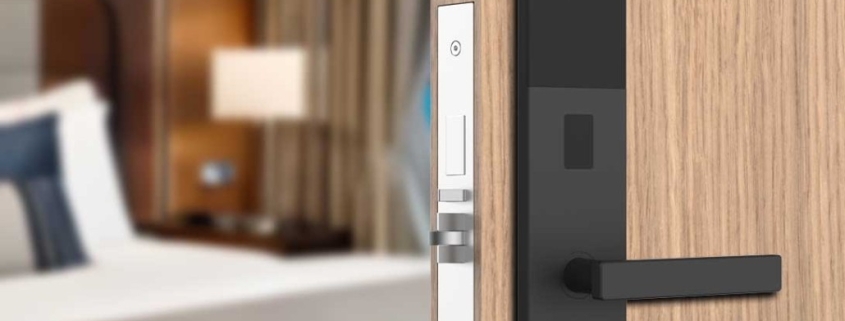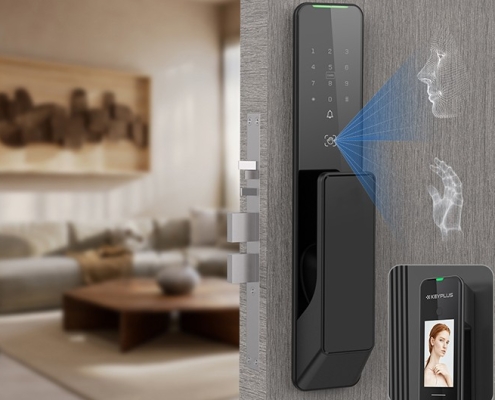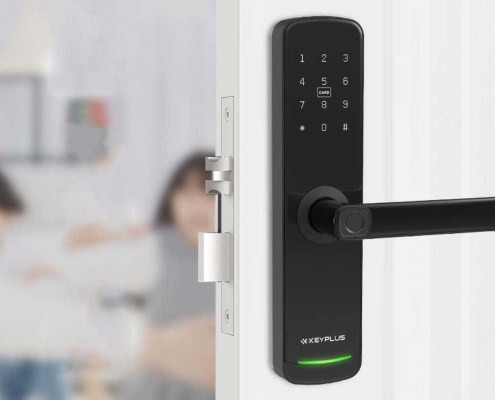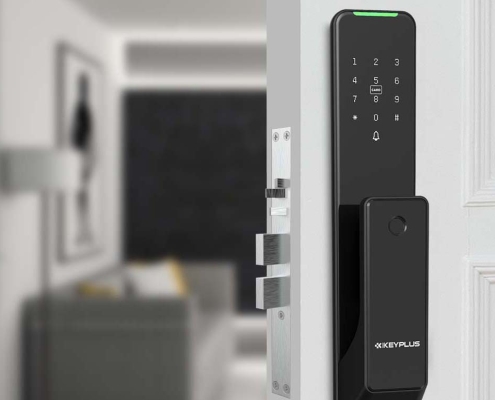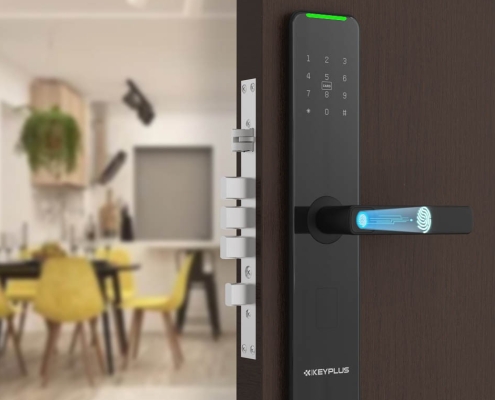Is a smart lock worth it?
Imagine this: It’s raining heavily, your hands are full of groceries, and you’re desperately fumbling for your keys. We’ve all been there. This frustrating scenario is exactly why smart locks have become one of the fastest-growing smart home technologies in America. But beyond convenience, are these high-tech door guardians truly worth your hard-earned money?
In this comprehensive guide, we’ll examine smart locks from every angle – their benefits, drawbacks, security implications, and real-world value – to help you decide if they’re right for your home. We’ll cut through the marketing hype and give you the straight facts you need to make an informed decision.
Understanding Smart Lock Technology
What Exactly Is a Smart Lock?
At its core, a smart lock is an electronic locking device that enhances or replaces your traditional deadbolt. Unlike conventional locks that require physical keys, smart locks offer multiple access methods:
-
Smartphone control via Bluetooth or Wi-Fi
-
Keypad entry with customizable PIN codes
-
Fingerprint or facial recognition (in premium models)
-
Voice control through smart assistants
-
Automatic locking/unlocking based on proximity
How Smart Locks Actually Work
Modern smart locks combine several technologies to provide secure access:
-
The Lock Mechanism: While the exterior may look high-tech, inside you’ll find the same sturdy deadbolt mechanism used in traditional locks, just powered by an electric motor instead of a key.
-
Wireless Connectivity: Depending on the model, your lock may use:
-
Bluetooth (for short-range smartphone control)
-
Wi-Fi (for remote access anywhere)
-
Z-Wave/Zigbee (for integration with home automation systems)
-
-
Access Control: The brain of the system is a small computer that verifies credentials (whether from your phone, fingerprint, or PIN) before triggering the lock mechanism.
The Real Benefits: More Than Just Convenience
1. Never Get Locked Out Again
-
No more frantic calls to locksmiths at $150+ per visit
-
Multiple backup access methods (PIN, fingerprint, physical key)
-
Remote unlocking capability if you forget to lock up
2. Enhanced Security Features
-
Real-time notifications when someone enters
-
Digital audit trails showing who came and went
-
Tamper alerts if someone tries to force entry
-
Auto-locking to prevent accidental unlocked doors
3. Smarter Home Management
-
Temporary access codes for guests/service providers
-
Scheduled access (e.g., for cleaners or dog walkers)
-
Integration with other smart home devices
-
Voice control through Alexa/Google Assistant
4. Insurance Benefits
Some homeowners insurance providers offer discounts (typically 5-10%) for having smart locks installed, as they’re considered a security upgrade.
The Flip Side: Potential Drawbacks to Consider
1. Upfront Costs
-
Quality smart locks range from 150−350
-
Professional installation adds 50−150 (though most are DIY-friendly)
-
Compare to 20−50 for traditional deadbolts
2. Technical Considerations
-
Wi-Fi models require strong signal near your door
-
Battery changes needed every 3-12 months
-
Potential connectivity issues during power outages
3. Security Concerns
While rare, potential vulnerabilities include:
-
Hacking of poorly secured devices
-
Bluetooth signal interception (for proximity-based locks)
-
Physical tampering with exposed electronics
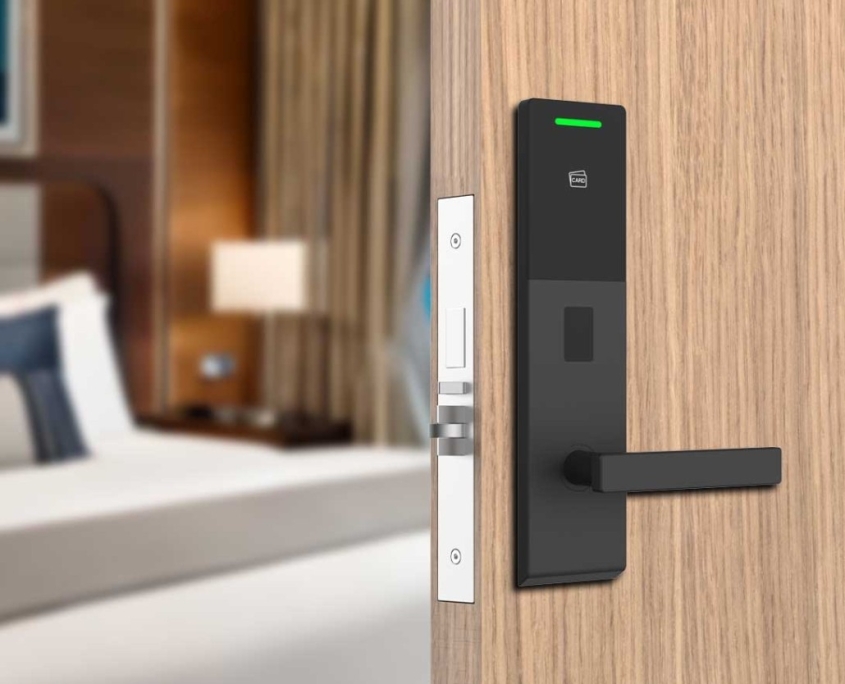
Smart Lock Security: How Safe Are They Really?
Understanding the Risks
Recent studies by cybersecurity firms have found:
-
75% of smart locks have at least one vulnerability
-
However, 90% of these require physical access to exploit
-
Major brands invest heavily in security
Best Practices for Secure Use
-
Always change default passwords/PINs
-
Enable two-factor authentication where available
-
Regularly update firmware
-
Use complex, unique access codes
-
Disable features you don’t need
“The average smart lock from a reputable manufacturer is significantly more secure than the cheap locks most Americans have on their doors,” says home security expert Mark Johnson. “The convenience features are just a bonus.”
Cost Analysis: Breaking Down the Investment
Initial Costs
| Lock Type | Price Range | Installation |
|---|---|---|
| Basic Smart Lock | 100−150 | DIY |
| Premium Smart Lock | 200−350 | DIY or Pro |
| Traditional Deadbolt | 20−50 | DIY |
Long-Term Savings
-
Average locksmith call: $150 (saved each time you avoid being locked out)
-
Key duplication: 2−5 per copy (eliminated)
-
Potential insurance discounts: 5-10% off premiums
ROI Calculation
For a $250 smart lock:
-
Avoid just two locksmith calls = pays for itself
-
Add insurance savings = net positive in first year
Who Should (and Shouldn’t) Get a Smart Lock
Ideal Candidates
-
Tech-savvy homeowners
-
Frequent travelers
-
Airbnb or rental property owners
-
Families with kids who often forget keys
-
Elderly residents who might lose keys
Better Off With Traditional Locks
-
Those uncomfortable with technology
-
Homes with poor Wi-Fi near entryways
-
People who frequently lose their smartphones
-
Extremely budget-conscious consumers
Installation: What to Expect
Most smart locks are designed for DIY installation:
-
Remove existing deadbolt
-
Install new smart lock mechanism
-
Connect to power source (usually batteries)
-
Download app and connect to home network
-
Test all access methods
Professional installation typically takes 30-60 minutes and ensures proper alignment and configuration.
The Verdict: Are Smart Locks Worth It?
After examining all the factors, here’s our assessment:
Worth It For:
-
Convenience seekers
-
Tech enthusiasts
-
Frequent travelers
-
Rental property owners
-
Security-conscious homeowners
Not Worth It For:
-
Those perfectly happy with traditional keys
-
Extremely budget-conscious consumers
-
People who prefer simple, non-tech solutions
Final Recommendation
If you value convenience, modern security features, and smart home integration – and can afford the 150−300 investment – a smart lock is absolutely worth it. Start with a mid-range model from a reputable brand to experience the benefits without overspending.
Remember: The best home security system is one you’ll actually use consistently. For many Americans, smart locks provide that perfect balance of security and convenience that makes them a worthwhile upgrade.

